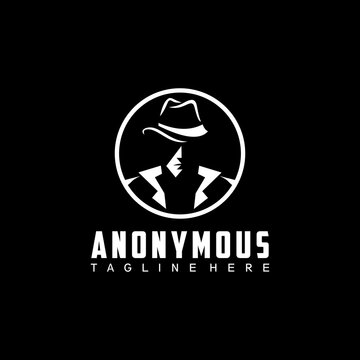Are you feeling overwhelmed or stressed out and looking for a way to get help? While traditional therapy has been the go-to option for many seeking mental health support, there’s an increasingly popular alternative that might surprise you. Distance counselling offers a range of benefits that traditional therapy can’t match. In this blog post, we’ll explore how distance counselling can empower you to take control of your mental health and improve your overall well-being. Whether you’re new to counselling or a seasoned veteran, you won’t want to miss this insightful look into the world of distance counselling.

The Convenience of Distance Counselling: How it Fits into Your Busy Schedule
Distance counselling offers the convenience of receiving therapy from the comfort of your own home. With busy schedules and limited time, it can be difficult to fit traditional therapy sessions into your day. However, with distance counselling, you have the flexibility to schedule sessions at a time that works best for you. This means you can avoid the hassle of commuting to appointments and instead use that time for self-care. Additionally, distance counselling allows for greater accessibility for those who may live in remote areas or have limited mobility. Overall, the convenience factor of distance counselling makes it a practical solution for those seeking mental health support.
Overcoming Barriers: Accessibility and Inclusivity in Distance Counselling
Accessibility and inclusivity are two of the biggest barriers that prevent individuals from seeking traditional therapy. Distance counselling, however, provides an alternative solution to these obstacles. With online platforms such as video conferencing and instant messaging systems, distance counselling eliminates the need for transportation or physical accessibility accommodations. This also makes it easier for individuals in rural or remote areas to access mental health services without having to travel long distances. Additionally, distance counselling can be a more inclusive option for those with disabilities or chronic illnesses who may have difficulty leaving their homes. Overall, distance counselling offers greater accessibility options that can help anyone receive the care they need regardless of location or physical ability.

The Power of Anonymity: How Distance Counselling Encourages Openness and Honesty
Distance counselling can offer a sense of safety and anonymity, which allows clients to share personal thoughts and feelings without fear of judgement or stigma. In fact, research has shown that individuals may be more willing to disclose sensitive information when communicating online as opposed to face-to-face.
This is especially important for those seeking help for mental health issues, where there may still be societal stigma surrounding such problems. Online platforms provide distance counsellors with the opportunity to create an environment where clients feel comfortable enough to open up about their struggles.
In addition, distance counselling often offers increased control over disclosure. Clients have the ability to choose what they want to share in each session, how much detail they want to go into and at what pace. This control empowers clients with a greater sense of agency over their own therapy process.
Ultimately, by offering anonymity and greater control over sharing personal experiences, distance counselling encourages openness and honesty in ways traditional therapy cannot match.
Building Stronger Connections: The Role of Technology in Distance Counselling
Breaking Barriers: How Technology Enables Access to Counselling Services
Technology has played a crucial role in breaking down barriers to accessing counselling services. With the rise of distance counselling, individuals who may have previously been unable to attend traditional therapy sessions due to geographical, physical, or time constraints can now receive support from the comfort of their own homes. Online platforms and video conferencing tools have made it possible for individuals to connect with qualified therapists from anywhere in the world. This has opened up a world of possibilities for those who may have felt isolated or unable to access the care they need.
Personalized Support from Afar: The Advantages of Distance Counselling for Clients
With distance counselling, clients can receive personalized support from the comfort of their own homes. Through video conferencing, phone calls, or messaging, clients can connect with their therapist at a time that works best for them. This flexibility allows for a more individualized approach to therapy, as clients can choose the mode of communication that suits them best. Additionally, distance counselling allows for more frequent check-ins and support between sessions, which can be especially helpful for those in crisis or in need of extra support. Overall, the personalized support and flexibility of distance counselling make it a valuable option for those seeking mental health care.
Embracing the Digital Era: The Evolution of Therapy in Remote Settings
As technology continues to advance, distance counselling has become an increasingly popular option for individuals seeking therapy. With the use of video conferencing, phone calls, and messaging apps, therapists can connect with clients from anywhere in the world. This evolution of therapy in remote settings has allowed for greater accessibility and convenience for those who may not have been able to access traditional therapy. Additionally, the use of technology has allowed for more frequent check-ins and real-time communication between therapist and client, leading to stronger connections and a more personalized approach to treatment.
The Therapeutic Alliance Across Screens: Building Trust and Rapport through Video Sessions
Video sessions in distance counselling provide a unique opportunity to build a strong therapeutic alliance between the client and therapist. Through the use of video conferencing technology, clients can connect with their therapist in real-time, allowing for face-to-face interactions that can help to establish trust and rapport. Nonverbal cues such as facial expressions and body language can be observed and interpreted, leading to a deeper understanding of the client’s emotions and experiences. Active listening is also enhanced through video sessions, as therapists can give their full attention to the client without distractions. Overall, video sessions in distance counselling provide a powerful tool for building stronger connections between clients and therapists, leading to more effective therapy outcomes.

Finding Comfort in Familiar Spaces: Why Distance Counselling Can Be More Comfortable Than Traditional Therapy
The Convenience of Distance Counselling: How It Can Fit into Your Busy Schedule
Distance counselling offers a convenient solution for those with busy schedules. With the ability to connect with a therapist from the comfort of your own home or office, there is no need to commute or take time off work. This convenience can also make it easier to fit therapy into your schedule, allowing you to prioritize your mental health without sacrificing other areas of your life. Furthermore, distance counselling allows individuals in remote or rural areas access to care that may not have been available otherwise, increasing inclusivity and accessibility in mental healthcare.
Overcoming Barriers to Traditional Therapy: How Distance Counselling Can Help
Overcoming barriers to traditional therapy such as physical disabilities, living in remote areas or having a hectic schedule can be challenging. Distance counselling allows access to qualified professionals and specialized services from the comfort of your own home or preferred space. Clients no longer have to worry about transportation, parking or travel time which can relieve stress and improve well-being. With easily accessible technology like video conferencing software, clients can receive the same level of attention and care without sacrificing their needs for convenience. This opens up new possibilities for people who may not have been able to seek help in the past due to various limitations.
The Comfort of Familiar Spaces: Why Distance Counselling Can Be More Relaxing
Distance counselling can be more relaxing than traditional therapy because it allows clients to receive therapy in the comfort of their own familiar spaces. Being in a familiar environment can help clients feel more at ease and less anxious, which can lead to a more productive therapy session. Additionally, clients may feel more comfortable opening up about sensitive topics when they are in a space where they feel safe and secure. This level of comfort can be especially important for those who have experienced trauma or have anxiety disorders. Overall, the comfort of familiar spaces is an important aspect of distance counselling that can make therapy sessions more effective and enjoyable for clients.
Breaking Down Stigma: How Distance Counselling is Helping to Normalize Mental Health Care
Distance counselling is helping to break down the stigma surrounding mental health care by providing a more accessible and comfortable option for those seeking help. With the ability to connect with a therapist from the comfort of their own familiar space, clients are more likely to feel at ease and open up about their struggles. This is especially important for individuals who may feel ashamed or embarrassed about seeking traditional therapy. Distance counselling also allows for greater privacy and anonymity, which can further reduce feelings of stigma and encourage individuals to prioritize their mental health. By normalizing mental health care through distance counselling, we can empower individuals to seek the help they need without fear of judgment or shame.
Overcoming Stigma: How Distance Counselling is Breaking Down Mental Health Taboos
Overcoming Stigma: Many people still feel ashamed or embarrassed about seeking therapy for mental health issues. Distance counselling can help break down these taboos by providing a more discreet and private way to access support. Clients can receive counselling from the comfort of their own homes, without worrying about being seen entering a therapist’s office. Additionally, distance counselling allows clients to connect with therapists who may not be available in their local area, giving them more options for finding the right fit. By reducing the stigma around seeking therapy, distance counselling empowers individuals to prioritize their mental health and seek the support they need to live happier, healthier lives.
Empowering Self-Care: The Benefits of Distance Counselling for Personal Growth and Development
Distance counselling can be a powerful tool for personal growth and development. With the convenience of being able to access therapy from anywhere, individuals can prioritize their mental health without sacrificing their busy schedules. Through the use of technology, distance counselling provides a safe and confidential space for individuals to explore their thoughts and emotions. This can lead to increased self-awareness and a deeper understanding of oneself.
Distance counselling also allows individuals to take control of their own mental health journey. They can choose a therapist that aligns with their values and needs, rather than being limited by location or availability. This can lead to a more personalized approach to therapy that is tailored to the individual’s unique circumstances.
Overall, distance counselling empowers individuals to prioritize their mental health and take control of their personal growth and development. It provides a flexible, accessible, and personalized approach to therapy that can lead to lasting positive change.
The Cost-Effective Solution: How Distance Counselling Can Save You Money Without Sacrificing Quality Care
Cost-effective solution is one of the biggest advantages of distance counselling over traditional therapy. Clients can access mental health services from the comfort of their own homes without having to worry about transportation costs or missing work to attend appointments. Additionally, saving money without sacrificing quality care is possible as many online therapists offer competitive rates that are often lower than those charged by brick-and-mortar practices. Distance counselling providers don’t have to pay for rent and other overhead expenses, allowing them to pass on the savings to their clients.
Moreover, there are no hidden costs such as parking fees or childcare expenses that may apply when attending in-person sessions. Furthermore, some insurance companies provide coverage for distance counselling services just like they do for traditional therapy making it an affordable option available for people who cannot afford high co-payments and deductibles involved with face-to-face therapies. Overall, distance counselling offers a budget-friendly way for individuals seeking treatment without compromising on quality care.

Supporting Long-Distance Relationships: How Distance Counselling Can Help Couples Stay Connected and Communicate Better
Distance counselling can be a valuable tool for couples in long-distance relationships. It provides a convenient way to stay connected and work through issues together, even when physically apart. With the help of technology, couples can engage in video or phone sessions with their therapist from anywhere in the world.
One of the key benefits of distance counselling for long-distance couples is improved communication. By having regular sessions with a therapist, couples can learn effective communication skills and strategies for resolving conflicts. They can also work on building trust and intimacy, which can be challenging in a long-distance relationship.
Another advantage of distance counselling is that it allows couples to address issues as they arise, rather than waiting until they are physically together again. This can prevent small problems from turning into larger ones and help maintain the health of the relationship.
Overall, distance counselling can be a valuable resource for couples in long-distance relationships who want to stay connected and work on their relationship together.

Bridging the Gap: Combining Traditional Therapy with Distance Counselling for Optimal Results
Traditional therapy has been the go-to solution for mental health issues for decades. However, with the rise of distance counselling, individuals now have access to a wider range of options. While distance counselling has its benefits, it’s important to note that it’s not a replacement for traditional therapy. Instead, it can be used in conjunction with traditional therapy to provide optimal results.
Combining traditional therapy with distance counselling can help bridge the gap between in-person sessions and remote support. For example, individuals who travel frequently or have mobility issues may find it difficult to attend regular in-person sessions. In such cases, distance counselling can be used as a supplement to ensure continuity of care.
Moreover, combining traditional therapy with distance counselling can provide individuals with more flexibility and convenience. They can choose to attend in-person sessions when they need more intensive support or opt for distance counselling when they need quick check-ins or support between sessions.
Overall, combining traditional therapy with distance counselling can provide individuals with a more comprehensive and personalized approach to mental health care.
In conclusion, distance counselling offers a range of benefits that make it a viable alternative to traditional therapy. From convenience and accessibility to anonymity and cost-effectiveness, distance counselling empowers individuals to take control of their mental health and well-being. With the help of technology, distance counselling is breaking down barriers and overcoming stigma, making it easier for people to seek the support they need. Whether you’re looking to improve your personal growth and development or strengthen your relationships, distance counselling can provide the tools and resources you need to achieve your goals. So why not give it a try? You may be surprised at just how much it can help you on your journey towards a happier, healthier life.
